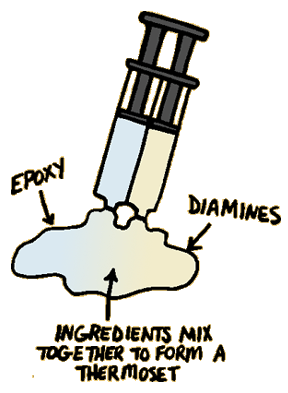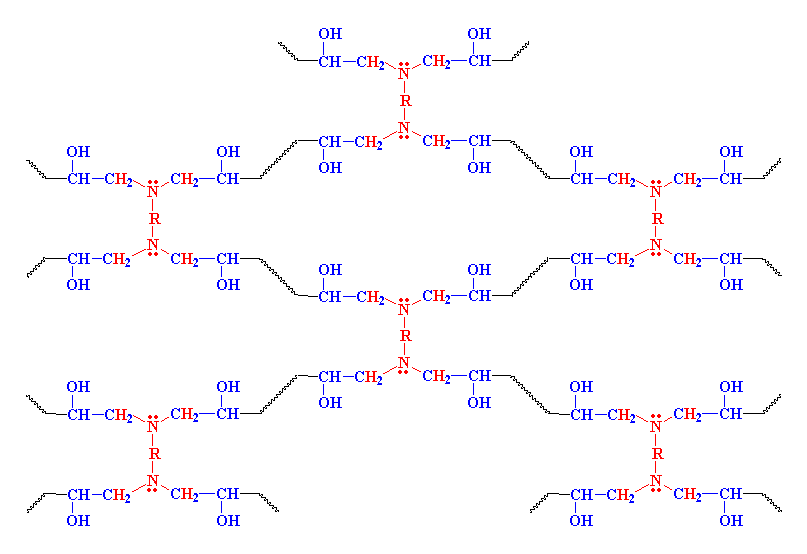


 Having a child does not make a man a Dad. That only makes him a father. To be a Dad, a father must own a few of the trappings of dadhood. A recliner is first on the list. A big drinking glass that says "World's Greatest Dad" is also up there. And then there are certain handyman supplies that no true Dad can be without: duct tape, a drill, and of course, a tube of two-part epoxy adhesive.
Having a child does not make a man a Dad. That only makes him a father. To be a Dad, a father must own a few of the trappings of dadhood. A recliner is first on the list. A big drinking glass that says "World's Greatest Dad" is also up there. And then there are certain handyman supplies that no true Dad can be without: duct tape, a drill, and of course, a tube of two-part epoxy adhesive.
Two-part epoxy is pretty impressive because it obviously has two components, which must be mixed together before using. So it must be some really powerful stuff if you have to mix it together! Dad must be a real fix-it pro.
But when you get older, more skeptical, and less easily impressed, you may start to ask questions: What are those two parts? And why don't they come already mixed together? That would be the sensible way to do it, wouldn't it?
The first part of the two-part epoxy is a low-molecular-weight polymer with epoxy groups at each end. This is what is shown in the 3-D model at the right. Can you see the epoxy groups at its ends? Its structure looks like this:
In these prepolymers n, which stands for the number of polymer repeat units, can be a high as 25, but the diepoxy in Dad's two-part epoxy adhesive is more likely a small molecule with two epoxy groups, like one of these little fellows:

Remember that other part? The second part is a diamine, which looks like this:

When you mix the two parts together, the diepoxy and the diamine, they do something fun. They react, and join together, in such a way that links all the diepoxy and diamine molecules together in a crosslinked network, like this:

You see, all the diamines and all the epoxy molecules have become one big molecule. When this happens, the result is a hard substance that can be very strong, so strong it can't even be melted! Think about it. This is why the two parts don't come already mixed together. If they did, they'd be a solid chunk, and not much use as an adhesive.
 Epoxy resins are so strong that they are one of the few adhesives that can be used on metals. But they're also used for things like protective coatings, and to make electronic circuit boards and for patching holes in concrete pavement. Epoxies are also used to make composites, as well as regular thermosets. Epoxy can set up in a mold just like plastic. It's used to make neat models for movies like this model laser gun that was used for the toy robots in the movie Short Circuit 2.
Epoxy resins are so strong that they are one of the few adhesives that can be used on metals. But they're also used for things like protective coatings, and to make electronic circuit boards and for patching holes in concrete pavement. Epoxies are also used to make composites, as well as regular thermosets. Epoxy can set up in a mold just like plastic. It's used to make neat models for movies like this model laser gun that was used for the toy robots in the movie Short Circuit 2.

|
Return to Kinds of Polymers |

|
Return to Main Page |